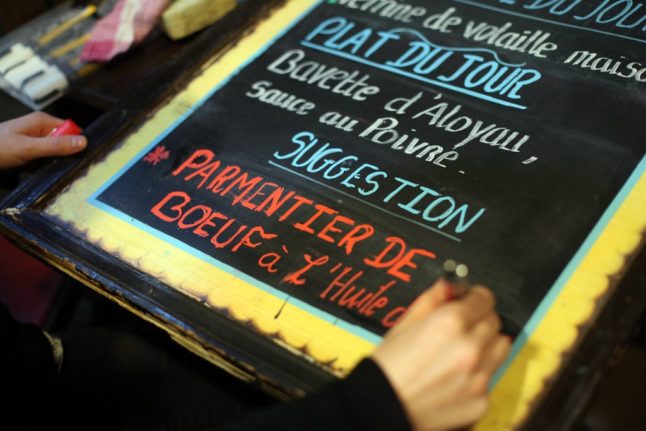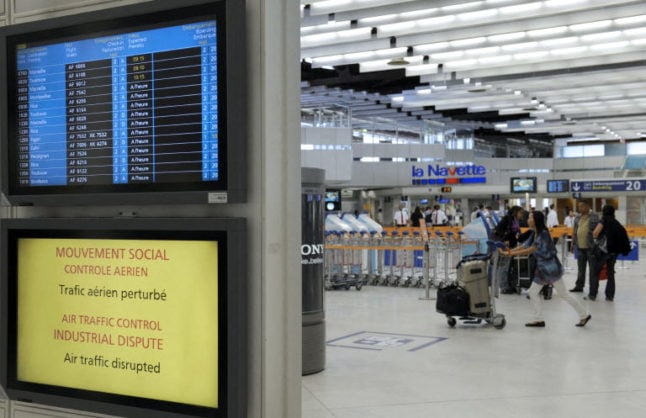We’re starting our trip in southern France, from the rugged mountains and hearty cuisines of Haut-Languedoc to the Mediterranean coast and its fresh fish and flavour-packed vegetables.
We’ll also be taking in plenty of local beverages from spritzes to pastis and – of course – wine.
The following is just our personal recommendation for some of the areas we’re passing through – please leave your suggestions and foodie tips in the comments box below.
Périgord – the historic Périgord district roughly conflates to modern Dordogne/Charente and is widely known as ‘duck country’.
Local farmers specialise in duck and you can expect to see duck on virtually every menu. Magret de canard – pan-fried duck breast with a lovely crispy skin – and confit de canard – duck thighs slowly roasted in fat and then crisped up in the frying pan – are the most common, but smoked duck, roasted duck, gésiers (duck gizzards) and of course foie gras are also popular.
What to order: To try a bit of everything, order a mixed duck salad – usually on a menu as salade tout le canard or salade Périgordine. Don’t expect this to be a light snack – it’s usually a mix of gorgeous duck breast, smoked duck, duck innards, duck paté and maybe some foie gras, served with walnuts and a few token lettuce leaves.
To drink: We’re in the Bordeaux appellation so obviously the wines are good. But for an apéro can we suggest Pinneau des Charentes? It’s a sweet fortified wine – available in red or white – and served chilled makes a delicious pre-dinner drink.
Languedoc – Another historic region, this takes in south-west France, taking in part of modern Occitanie. The name comes from langue d’oc and it has own language – Occitan – which is very different to modern French. Food-wise this is truly the land of hearty, rustic cuisine paysanne. There’s still a lot of duck around and also try out the exceptionally meaty Toulouse sausage.
What to order – it has to be cassoulet, but traditionally this is a winter-only dish. You’ll find plenty of tourist spots that sell it in the summer, but it’s better in winter. A heavy stew bursting with flavour featuring white beans and sausage and meat – either duck, goose or pork depending on where you are. Like all the best regional dishes, there is fierce rivalry over who invented this dish and the ‘correct’ recipe.
To drink: Crémant de Limoux. It’s not only the Champagne region that makes fizzy wines, plenty of other areas of France produce sparkling offerings. They’re not allowed to be called Champagne but many of them are delicious – and much cheaper than Champage. Limoux’s crémants make a great pre-dinner drink and most menus in the region will offer a coupe (glass), usually for less than €5.
Marseille – France’s second city often gets a bad rap, where the press are fixated on stories of drugs and crime. Yes, those exist but it’s also a beautiful seaside resort great for holidays – and with excellent cuisine.
What to order: It has to be bouillabaisse – the legendary fish stew of Marseille. There are lots of tourist restaurants that serve this ‘non stop’, but their offering is usually not the best. Instead seek out a fish restaurant and don’t be surprised if they tell you that it has to be ordered 24 hours in advance – a true bouillabaisse is made by reducing down fish bones to a flavoursome stock with long, slow cooking and then adding the other ingredients (fish, potatoes, alcohol).
To drink: Pastis is popular throughout the south, but the brand of Marseille is Ricard. The aniseed drink is yellow, but goes cloudy when mixed with water. You can ask for a ‘piscine‘ if you want a more dilute version.
Provence – One of the most beautiful areas of France, people come from all over the world to see the lavender fields in summer – and then try the numerous lavender scented cakes and sweets. There’s lots of savoury foodie offerings though and the cuisine of Provence is very diverse.
What to order: Ratatouille. The Mediterranean sunshine means vegetables grow big and full of flavour and this dish makes them the star of the show (plus traditional French cuisine tends to be quite meat-heavy, so take the opportunity for a veggie dish).
To drink: Rosé wine. Provence is the heartland of rosé production and has hundreds of beautiful wines, from sweet to crisp and dry with everything in between. Gorgeously refreshing on a hot day.
Nice – France’s most elegant and historic seaside resort has all the flavours of the Mediterranean coupled with excellent fish dishes.The city gives its name to perhaps the world’s best-known salad (Caesar, you say? Never heard of him) and as with all the best regional dishes, there are regular vicious scraps about how exactly a Salade Niçoise should be prepared.
What to order: We’ve been eating a lot of heavy meals on this trip, so let’s settle for a snack here – Socca.
Sort of half way between a bread and a pancake, socca is made with chickpea flour and baked on a round griddle or in a wood-fired oven. It’s traditionally eaten at apéro time, but can be a filling lunch of tasty snack. You’ll find dozens of street stalls and markets selling it, so grab a hot socca and then go and watch the sun set over the Promenade anglais.
To drink: Apérol is actually Italian, but Apérol spritz is very widely served across France in the summer months so where better to drink it than France’s most Italian city? (Nice was actually Italian until 1860 and the Italian influence remains strong in the culture and cuisine).
Spritz drinks are hugely popular in France as a refreshing and not-too-strong apéritif – if you find Apérol too lurid try a Campari spritz or Lillet (made in Bordeaux it’s the preferred drink of the fictional killer Hannibal Lecter).
READ ALSO



 Please whitelist us to continue reading.
Please whitelist us to continue reading.
You have made some lovely suggestions here all of which are very enjoyable – I find it difficult to understand why the south east of France is often on referred to as the South west!! Surely the South West of France is the Atlantic side of France! Maybe the reference should be South west Mediterranean – which is geographically correct.
The south west of France has so much to offer in both food & wine as well as interesting history Gascony for example is a gastronomic wonder – the Gers with the traditional family Domaines and Lot et Garonne where you will experience value for money with the traditional 5 course Menu de Jour! A wonderful French experience! MM
As a Nice resident I can advise that the most sociable place to get socca is Chez René Socca on Rue de Miralheti (just off Jean Jaurés at the North end of Vielle Ville), while the supposed best is served at Chez Pipo at 13 Rue Bavastro near the Port. However Pipo is a rather formal restaurant with little outside seating and also fills up quickly around lunchtime.
A very good guide to the cooking of Nice and the surrounding area is The Cuisine of the Sun by the late Mireille Johnson (a true Nicoise). It’s out of print but easily available second hand. Older readers may remember her from her two excellent BBC series in the early 90s.